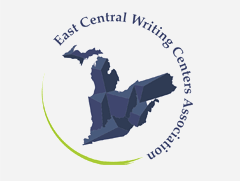Presentation/Proposal Title
Breaking Through the “Editing Service” Misperception: Using Telephone Consultations to Serve Students in Online Courses
Type of Presentation/Proposal
Individual Presentation or Paper
Start Date
5-4-2019 8:30 AM
End Date
5-4-2019 9:30 AM
Keywords
online courses, distant students, synchronous, telephone consultations, asynchronous
Description
Progress for most universities today means developing programs that attract applications from a shrinking pool of students. The convenience of online courses is one solution, and writing centers have looked to invent ways to serve these distant students.
However, asynchronous email consultation often becomes a mere “editing service.” Even when writing center consultants properly ask questions of a writer before offering substantive advice, they often do not receive a response. The “virtual” visit to the writing center then becomes a one-stop affair that hardly addresses global concerns of thesis, support for it, and organization. Even in a synchronous chat format, the interchanges sometimes fall apart when the consultant waits, for instance, 20 minutes for a response and finally sees on screen the question, “have you finished marking my essay yet?” Skype, Facebook, and other electronic methods of face-to-face consultation are quite promising but also present challenges. A writing center can have the most up-to-date technology but the same technology is not always available to the students.
Almost all students, however, have a telephone. It might seem the opposite of a breakthrough, but the University of Indianapolis Writing Lab has found that simple telephone consultations offer ease and convenience that obviate many difficulties. A telephone consultation can easily begin by asking questions about global issues; writers do not wander off during it, and, best of all, a consultant can often hear, even if s/he can’t see, how the advice is being received and immediately react if needed with a different approach.
Breaking Through the “Editing Service” Misperception: Using Telephone Consultations to Serve Students in Online Courses
Alumni Boardroom
Progress for most universities today means developing programs that attract applications from a shrinking pool of students. The convenience of online courses is one solution, and writing centers have looked to invent ways to serve these distant students.
However, asynchronous email consultation often becomes a mere “editing service.” Even when writing center consultants properly ask questions of a writer before offering substantive advice, they often do not receive a response. The “virtual” visit to the writing center then becomes a one-stop affair that hardly addresses global concerns of thesis, support for it, and organization. Even in a synchronous chat format, the interchanges sometimes fall apart when the consultant waits, for instance, 20 minutes for a response and finally sees on screen the question, “have you finished marking my essay yet?” Skype, Facebook, and other electronic methods of face-to-face consultation are quite promising but also present challenges. A writing center can have the most up-to-date technology but the same technology is not always available to the students.
Almost all students, however, have a telephone. It might seem the opposite of a breakthrough, but the University of Indianapolis Writing Lab has found that simple telephone consultations offer ease and convenience that obviate many difficulties. A telephone consultation can easily begin by asking questions about global issues; writers do not wander off during it, and, best of all, a consultant can often hear, even if s/he can’t see, how the advice is being received and immediately react if needed with a different approach.


